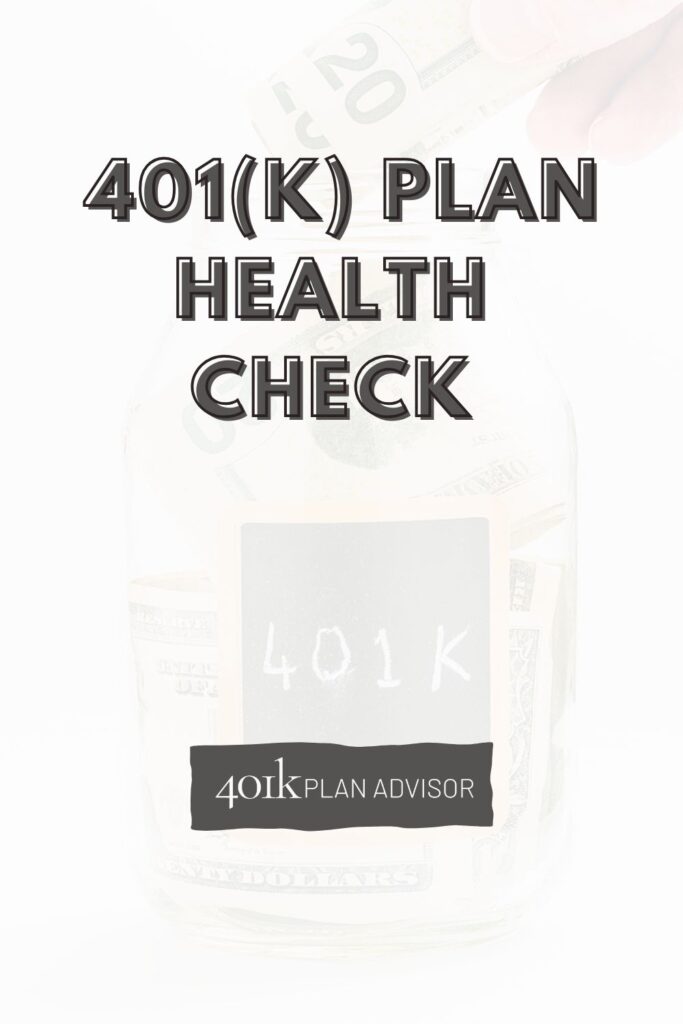Why Aren’t Employees Contributing to Their 401(k)s?
Offering a 401(k) plan is one of the most powerful ways employers can help their team build financial security. But for many organizations, the real challenge isn’t setting up the plan—it’s getting employees to participate. So, why aren’t more workers taking advantage of this valuable benefit?
Here are the top reasons employees hesitate to contribute to their 401(k)s—and what employers can do to help.
8 Common Reasons Employees Don’t Contribute to a 401(k)
After more than a decade of working directly with plan participants, these are the most frequent and impactful reasons employees give for not contributing to their 401(k) plans.
1. Student Debt Takes Priority
Many employees, especially younger ones, are overwhelmed by student loans. With monthly payments taking a big bite out of their income, saving for retirement can feel like a far-off luxury rather than a necessity. Even when employers offer a match, some workers feel they just can’t spare the extra dollars.
2. They Don’t Trust Their Employer
Trust plays a big role in financial decisions. If employees are uncertain about job stability or the company’s long-term future, they may hesitate to tie their money into a workplace-sponsored plan—even one with tax benefits.
3. They Don’t Understand What a 401(k) Is
Let’s face it: retirement plans can sound like alphabet soup. Without a clear, jargon-free explanation, terms like “vesting,” “pre-tax,” and “Roth” can confuse more than they educate. For someone new to the workforce—or someone who’s never had a retirement plan—401(k)s can seem intimidating or irrelevant.
4. Lack of Financial Literacy
Many people were never taught the basics of budgeting, saving, or investing. Without that foundation, it’s tough to feel confident making choices about retirement contributions. And when you’re unsure, it’s easy to put the decision off.
According to a recent TIAA study:
Gen Z showed the lowest financial literacy of any generation in the P-Fin Index, averaging just 38% correct answers.
This underscores a growing need for accessible, real-world financial education—especially as younger workers enter the workforce and begin navigating 401(k) plans for the first time.
5. No One to Ask for Help
HR teams wear many hats, and employees often don’t know where to turn for help with their 401(k).
Without a dedicated 401(k) advisor and a targeted education plan in place, employees may feel overwhelmed by plan choices and default to doing nothing—opting out entirely rather than risk making the “wrong” decision.
Empowering employees starts with giving them the right support and clear, accessible guidance.
6. Influence of Social Media and Pop Finance Gurus
Misinformation and Mixed Messages from Online Influencers
Employees are constantly exposed to financial advice from influencers, YouTubers, and podcast hosts. While some offer helpful insights, many of these voices are unlicensed and unregistered—they hold no professional credentials and are not regulated by state insurance departments, FINRA, or the SEC.
They often share one-size-fits-all advice that may sound convincing but doesn’t reflect the complexity of real-life financial decisions.
Common (but misleading) messages include:
- “Don’t contribute to your 401(k) if you have debt.”
- “Your 401(k) isn’t worth it—just invest in crypto instead.”
- “You can retire without using a retirement plan.”
- “Avoid employer plans—they’re full of hidden fees.”
This kind of oversimplified advice creates confusion, erodes trust in employer-sponsored plans, and can discourage employees from participating in their 401(k) at all—missing out on key benefits like tax advantages and employer matches.
The truth is, personalized financial guidance—just like medical advice—is always more effective than generic soundbites. Every financial situation is unique, with nuanced needs, goals, and trade-offs.
That’s why having a targeted education plan and access to a dedicated 401(k) advisor makes a difference. When employees receive credible, personalized support, they’re far more likely to take action and build long-term financial security.
7. Money Feels Too Tight
Even a small 401(k) contribution can feel out of reach for workers living paycheck to paycheck. Rising costs of housing, childcare, and essentials make it harder to prioritize long-term savings, especially when there are more immediate financial pressures.
8. They Don’t Plan to Stay Long
If an employee expects to leave the company within a year or two, they may think contributing to a 401(k) isn’t worth the hassle. Misunderstandings around vesting schedules and portability can further discourage short-term workers from participating.
How a 401(k) Advisor Supports Employee Well-Being and Strengthens Your Business
When employees feel financially stressed, it affects morale, productivity, and retention. Helping your team understand and use their 401(k) benefits isn’t just good for them, it’s good for business.
That’s where a dedicated 401(k) advisor comes in. A knowledgeable advisor can:
- Break down complex topics in plain, relatable language
- Provide one-on-one guidance for employees at all stages of life/career
- Deliver ongoing education
- Ensure plan design fits your workforce’s needs
- Bridge the trust gap by acting as a neutral, expert resource
When employees feel confident about their financial future, they’re more likely to stay engaged and loyal—and more likely to see your company as a place where they can grow.
Empower your team by giving them the education, tools, and support they need to take control of their financial future.
A 401(k) plan is more than a benefit—it’s a bridge to long-term confidence and security.
Ready to make your 401(k) plan work smarter for your team?
Let’s talk about how a dedicated advisor and real-world education can make all the difference. Contact us today to get started.


Get your Free report
Just 15 Questions to Assess Your Plan’s Health
This quick 15-question quiz checks the health of your 401(k) plan, covering areas like fees, governance, and participant support. You’ll get a personalized report with simple, actionable tips to make your plan stronger and reduce risks.






